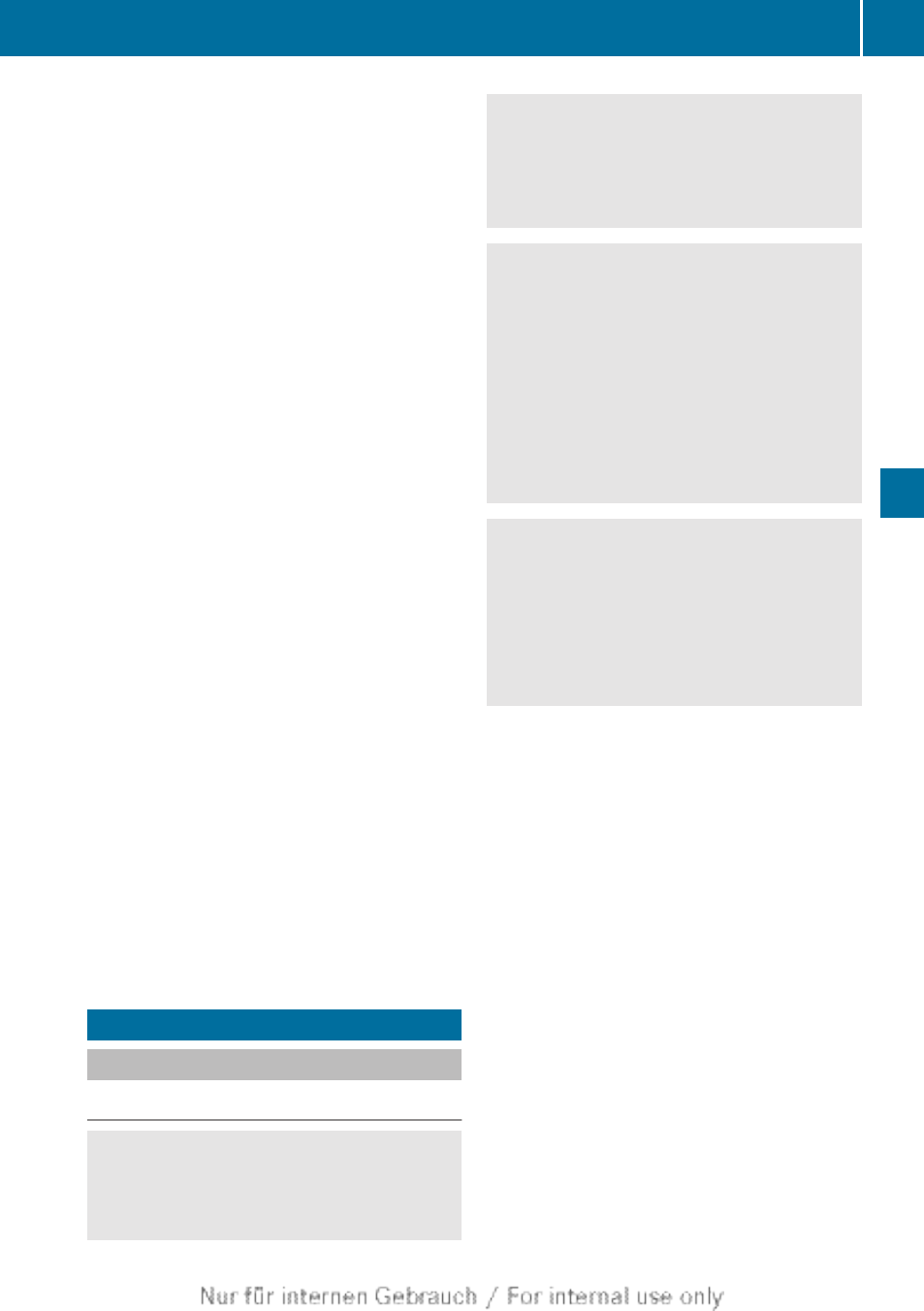Towing a trailer, Notes on towing a trailer, Driving and parking – Mercedes-Benz 2013 CLA Class User Manual
Page 203

When
Standard is selected, no warning vibra-
tion occurs if:
R
you have switched on the turn signals. In
this event, the warnings are suppressed for
a certain period of time.
R
a driving safety system intervenes, such as
ABS, BAS or ESP
®
.
When
Adaptive is selected, no warning vibra-
tion occurs if:
R
you have switched on the turn signals. In
this case, the warnings are suppressed for
a certain period of time.
R
a driving safety system intervenes, such as
ABS, BAS or ESP
®
.
R
you accelerate hard, e.g. kickdown.
R
you brake hard.
R
you steer actively, e.g. swerve to avoid an
obstacle or change lane quickly.
R
you cut the corner on a sharp bend.
In order that you are warned only when nec-
essary and in good time if you cross the lane
marking, the system recognises certain con-
ditions and warns you accordingly.
The warning vibration occurs earlier if:
R
you approach the outer lane marking on a
bend.
R
the road has very wide lanes, e.g. a motor-
way.
R
the system recognises solid lane markings.
The warning vibration occurs later if:
R
the road has narrow lanes.
R
you cut the corner on a bend.
Towing a trailer
Notes on towing a trailer
Important safety notes
G
WARNING
The braking system can overheat if you leave
your foot on the brake pedal while driving.
This increases the braking distance and could
even cause the braking system to fail. There
is a risk of an accident.
Never use the brake pedal as a footrest. Do
not simultaneously depress both the brake
pedal and the accelerator pedal while driving.
G
WARNING
You could lose control of the vehicle/trailer
combination if it begins to swerve. The vehi-
cle/trailer combination could even overturn.
There is a risk of an accident.
On no account should you attempt to
straighten out the vehicle/trailer combina-
tion by increasing speed. Decrease your
speed and do not countersteer. Brake if nec-
essary.
G
WARNING
If you exceed the permissible noseweight
while carrying a load, the carrier system could
detach from the vehicle and fall on the road.
There is a risk of an accident and injury.
Always maintain the permissible noseweight
when carrying loads.
!
Depressing the brake pedal constantly
results in excessive and premature wear to
the brake pads.
If you exceed the maximum permissible nose-
weight of the trailer drawbar on the ball cou-
pling, the following may become damaged:
R
your vehicle
R
the trailer
R
the ball coupling
R
trailer tow hitch
The vehicle/trailer combination could
become unstable.
If the noseweight used is lower than the min-
imum permissible noseweight, the vehicle/
trailer combination could also become unsta-
ble.
Towing a trailer
201
Driving and parking
Z